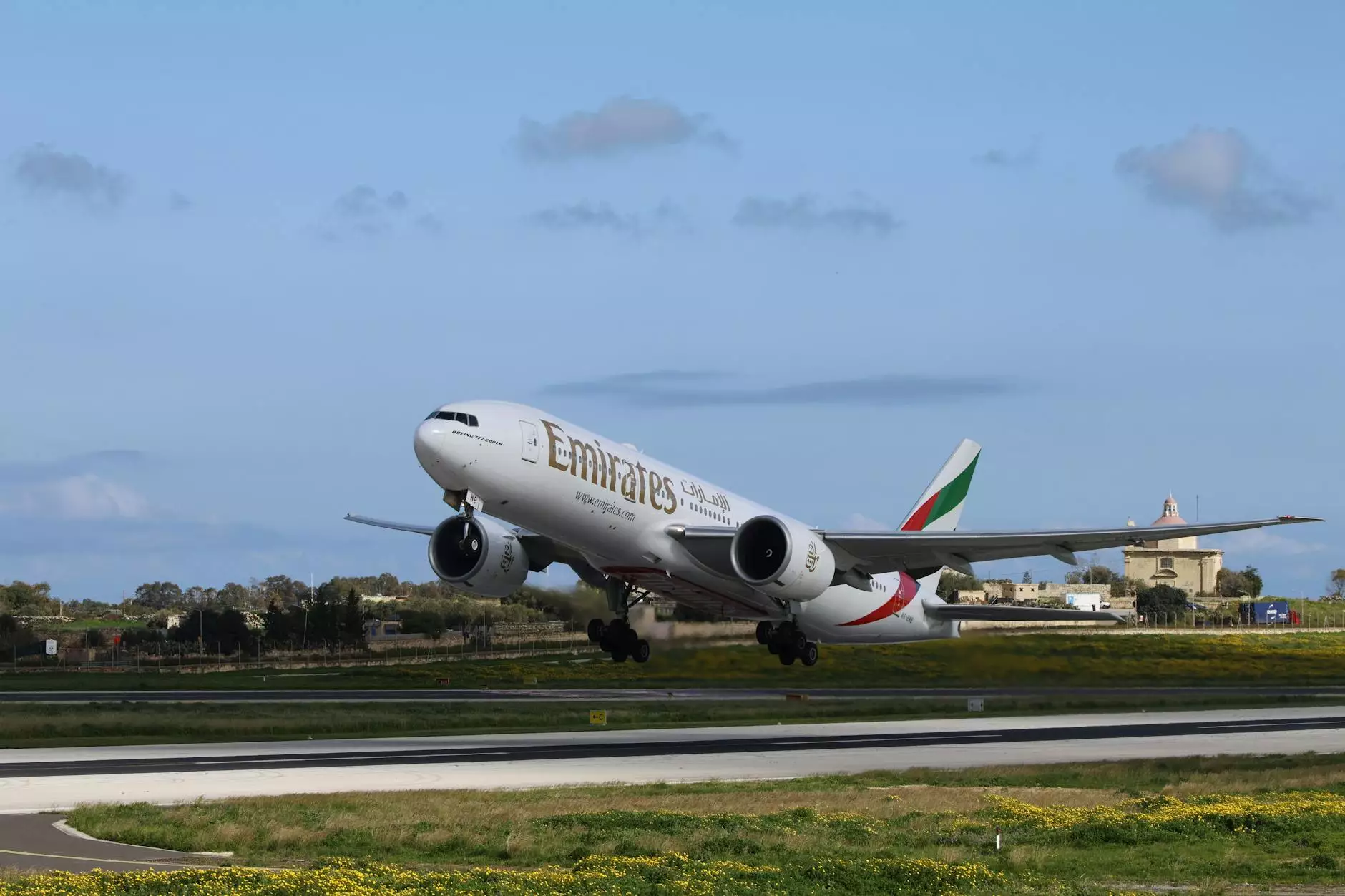Comprehensive Guide to Air Cargo Rates and Charges: Maximize Your Shipping Efficiency

In today’s fast-paced global economy, air cargo transportation stands as a pivotal component of international trade, enabling businesses to move goods swiftly across continents. However, understanding the complexities surrounding air cargo rates and charges is essential for shippers seeking to optimize costs while maintaining high standards of service. This comprehensive guide aims to equip you with detailed insights into the factors influencing air cargo pricing, how rates are calculated, and strategies to manage expenses effectively.
Understanding the Significance of Air Cargo Rates and Charges
Effective management of air cargo rates and charges is crucial for any business involved in international shipping. It influences profitability, competitiveness, and service quality. Elevated or unpredictable rates can significantly impact supply chain efficiency, whereas transparent and optimized pricing models enhance business resilience and customer satisfaction.
Transporting goods via air freight offers unmatched speed and reliability but entails complex pricing structures that account for various operational costs, regulatory fees, and cargo specifics. A thorough understanding of these components empowers shippers to negotiate better deals and plan their logistics with precision.
Components of Air Cargo Rates and Charges
1. Basic Freight Rate
The foundational element of air cargo rates and charges is the basic freight rate, which is typically calculated on a per kilogram or per pound basis. This rate varies depending on the route, airline policies, cargo volume, and weight. It reflects the cost of transporting the cargo from the origin to the destination and forms the core of the entire pricing structure.
2. Dimensional or Volumetric Weight Charges
In addition to actual weight, many airlines use dimensional weight (volumetric weight) to determine the cargo charge. When the cargo's volume is large relative to its weight, the airline applies volumetric weight calculations to ensure fair pricing. The typical formula is:
Dimensional Weight = (Length (cm) x Width (cm) x Height (cm)) / Dimensional FactorThis ensures that bulky but lightweight shipments do not occupy excessive space, leading to fairer pricing for both carriers and shippers.
3. Fuel Surcharge
Given the volatile nature of fuel prices, fuel surcharges are variable fees added to cover fluctuations in jet fuel costs. These surcharges are periodically adjusted by airlines and significantly influence overall shipping expenses.
4. Security and Handling Fees
Airports and airlines impose various security charges to comply with international safety regulations. These include security screening and handling charges, ensuring cargo safety while adding to the total cost.
5. Customs Duties and Taxes
Depending on the destination country’s regulations, customs duties and taxes apply to certain goods. While these are paid upon import, they influence the overall shipping cost considerations, and pre-calculating them can aid in budgeting.
6. Special Handling Charges
Perishable, hazardous, oversized, or valuable cargo often requires special handling, incurring additional charges. These may include refrigeration, special packaging, or security measures, impacting the total cost.
Factors Influencing Air Cargo Rates and Charges
1. Route and Destination
Flights to high-demand or remote destinations tend to have higher rates due to increased operational costs, limited frequency, and logistical complexities. Popular routes often benefit from competitive pricing owing to higher traffic volume.
2. Cargo Type and Nature
Fragile, hazardous, or temperature-sensitive cargo necessitates specialized handling and equipment, elevating rates. Conversely, standard shipments experience more predictable pricing structures.
3. Flight Frequency and Capacity
Availability of flight slots and cargo capacity directly influence rates. During peak seasons or cargo surges, prices typically escalate due to increased demand.
4. Timing and Lead Time
Urgent shipments or last-minute bookings generally attract premium rates. Planning shipments in advance provides leverage for negotiated discounts and better rates.
5. Carrier and Service Level
Diversified carriers and premium service options, such as priority handling or direct flights, come at a premium, whereas economy options typically lower costs.
How Rates are Calculated: The Pricing Mechanism
The calculation of air cargo rates and charges involves a sophisticated methodology designed to balance operational costs, market conditions, and customer expectations:
- Weight-based calculations: Using either gross weight or volumetric weight, whichever is higher, to compute the charge.
- Zone-based pricing: Rates vary based on geographic zones, with more distant zones incurring higher fees.
- Flexible surcharges: Adjusted dynamically in response to fuel prices, currency fluctuations, or regulatory changes.
The ultimate price presented to the client reflects a combination of these factors, often supplemented with negotiated discounts, volume rebates, or contractual agreements.
Optimizing Air Cargo Rates and Charges for Your Business
1. Consolidate Shipments
Consolidation involves grouping smaller shipments into a single, larger cargo consignment, reducing per-unit costs and leveraging economies of scale.
2. Choose the Right Carrier and Service
Analyzing various airlines and service options enables selecting the best balance between cost, speed, and reliability. Established freight brokers and booking platforms like cargobooking.aero assist in finding optimal carriers.
3. Plan in Advance
Early booking often results in lower rates due to lower airline capacity constraints and promotional offers. Avoiding last-minute shipments minimizes surcharges and premium fees.
4. Optimize Packaging
Reducing the dimensional weight through efficient packaging can significantly decrease costs, especially for bulky items. Proper packaging also ensures safety and compliance with safety standards.
5. Leverage Technology
Using advanced freight management tools and tracking platforms allows real-time rate comparisons, monitoring shipment status, and negotiating better deals through data insights.
The Role of Digital Platforms in Managing Air Cargo Rates and Charges
Digital freight platforms, such as cargobooking.aero, revolutionize how businesses access and manage air cargo rates and charges. These platforms provide transparency, real-time quotations, and advanced analytics, enabling shippers to:
- Get instant price quotes from multiple carriers
- Compare service levels and costs seamlessly
- Negotiate better rates through data-driven insights
- Optimize shipping routes and schedules
- Ensure compliance with international regulations
Legal and Regulatory Considerations Impacting Air Cargo Rates
Various international and local regulations influence air cargo rates and charges. These include customs tariffs, trade agreements, and safety standards. Compliance ensures smooth transit and avoids penalties, indirectly affecting overall costs.
Future Trends in Air Cargo Pricing
The landscape of air cargo rates and charges continues to evolve driven by technological innovations, shifting geopolitical climates, and expanding global trade. Emerging trends include:
- Dynamic pricing models: Automated rate adjustments based on real-time market conditions.
- Enhanced transparency: Blockchain and digital platforms providing detailed rate breakdowns.
- Sustainable logistics: Green aircraft and eco-friendly handling increasing operational costs but promoting corporate responsibility.
- Integration with multimodal logistics: Combining air freight with sea and land transport to optimize costs and delivery times.
Why Choose Cargobooking.aero for Your Air Cargo Shipping Needs?
At cargobooking.aero, we specialize in providing comprehensive solutions for shipping centers, transportation, and airports, empowering businesses to navigate the complexities of air cargo rates and charges. Our platform offers:
- Real-time rate comparisons: Access the most competitive prices from multiple airlines in seconds.
- Expert support: Guidance on optimizing your logistics strategies.
- Seamless booking process: Simplified procedures to secure space quickly.
- Transparent pricing: Detailed rate breakdowns and clear surcharge explanations.
- Custom solutions: Tailored logistics plans to fit unique business needs.
Conclusion: Take Control of Your Air Cargo Costs
Understanding and managing air cargo rates and charges is vital for maintaining competitive advantage and operational efficiency in international trade. By mastering the components influencing pricing, leveraging digital platforms, and adopting strategic practices, businesses can significantly reduce costs and improve service quality. Whether you are shipping from major hubs or remote destinations, being well-informed and proactive ensures your logistics are optimized for success.
Explore the extensive capabilities of cargobooking.aero today to unlock the best rates and streamline your air cargo operations. Embrace the future of intelligent, transparent, and cost-effective freight logistics.
air cargo rates and charges








